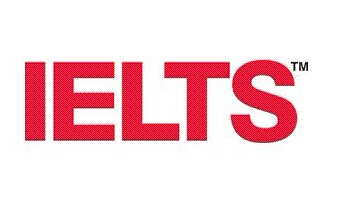TPO是适合反复听的托福听力材料
2013-09-12 15:15 供稿单位: 新航道
出国英语考试有哪些 雅思6.5是什么水平 雅思阅读评分标准 托福阅读评分标准 雅思和托福的区别
很多人有一个误区:听力做了一遍,对文章和题目都有印象了,于是这套题就废了。
其实不然,听力题目只有一做再做,一听再听,才能领悟其真谛。往往,同样的一套题,每听一遍都会有不一样的感受。不知大家是否都有过这样的经历:一篇文章,遍听可能只知其大意,第二遍听就听出了细节,第三遍听简直就有种听中文的感觉了!这就是反复听对于文章内容的理解不断加深的过程。如果你愿意每一次听完都做一遍题,遍错3个,第二遍就几乎不错,第三遍你听着文章都知道哪个地方考啥题了!这就是反复听对于出题方式的理解不断加深的过程。
可能大家会说,考试又不考这篇,听懂了有什么用?这我就要好好反驳一下了。,按照这个逻辑,只要做的题目不是将来考试的题目,听了就没用。那我们就不要练习了。因为任何一篇我们现在练习的题目都不会出现在的考题中……第二,托福听力内容限于固定的几个学科和固定的谈话对象。因此,不同文章之间必然存在共通之处。比如,conversation中,学生找教授不外乎3件事:考试、作业、提问题。lecture中,总是3种类型:解释概念,回溯历史,说说某个伟大的人云云。尽管具体内容千变万化,但万变不离其宗——变的是形,不变的是质;变的是文章具体内容,不变的题目类型和答题方式。所以,这些文章非但不是一文不值,简直就是一字千金,里边的每个词,每句话都值得推敲和研读。第三,听力的提高在于多听多练,只有多做题才能提高听力能力,这是本质上的提高,是任何解题方法都无法替代的能力提升方式。即使是反复听同一篇文章,相信我,那也是能力提高的过程,只有量变积累到一定程度才能发生质变嘛!
说了这么多,只是想表达一个思想:听力,一定要反复听。
那么最适合反复听的听力材料是什么呢?个人见解:就是TPO。尽管很多人都说TPO其实是ETS出的不好的废题或者TPO其实比真实考试难度有所降低,但在我看来,TPO仍是所有备考资料中最最接近真实考试思路的,毕竟它是ETS出品啊!我们可以经由TPO来推敲ETS的考试思路。
那么怎样反复听呢?哎哟,说了这一车话,总算讲到重点了,没办法,楼主就是一个絮絮叨叨的人。。。这里,先来讲讲conversation反复听的方法。听力的道题就是conversation,这要是做不好恐怕就要自乱阵脚了。所以,尽管conversation相对简单,咱们依然不能马虎。反复听要4步走:
1、听记+做题,每一遍都要有这个步骤,耐心听,仔细记,认真答。不要因为是听过的材料就松懈了,但是一定要每一次都有变化和提高。比如,次听时听不懂的单词,第二次听就别再不懂了;次记时漏过的细节,第二次听时就别再错过了;次做时选错的题目,第二次就别再选错了(就算错同一题,至少选项换一个)
2、对答案+做记录,不只是记错题的题号,还要记错题的类型,比如:主旨大意题、重听题、推断题等等,这样才能了解自己的弱势题型。并且,要对每一次的错题做一个分析,为什么我的选项错,人家的选项对。当然,这个理解只属于你个人,也许不确切,但只要你自己认可,而且用这个方法下次能筛选出正确的答案就是正确的理解。
3、看原文+找答案出处。这个过程很重要,它让你知道哪里是出题点,哪里是需要精听和记录的部分。如果每一篇文章都花时间做这件事,久而久之,你就会对出题点非常敏感,即使错过部分段落,也绝不会错过出题点。听力跟阅读不一样,同样是一篇很长的文章,阅读一问问12道,但听力只考5-6道。这就意味着,阅读的出题点贯穿始终,但听力却相对松散。英语毕竟不是我们的母语,要我们对一门不熟悉的语言听这么长时间,走神是必须的!但知道出题点,就确保我们即使走神错过了某部分,也一样能做对题目。
4、重听录音+修改笔记,这一遍再听就是带着问题来听了,而且你知道哪里是出题点,对照之前自己的笔记,查看一下究竟哪里自己没有记下来,哪里自己记了但根本没考,哪个词是答案的关键,哪个词是记了却没意义的等等。并结合第二遍听到的内容对笔记进行修正。通过这个过程,修正自己不正确的听力思维,确保自己对于什么该记什么不该记更加明确。
啊,又说了好多啊。我们来举个实例说明问题吧!TPO1 Conversation1
我们直接跳到第三步,结合《新托福听力结构法》来谈谈哪里是出题点。
Listen to part of a conversation between a student and a librarian.
Student: Hi, um…, I really hope you can help me.
Librarian: That’s why I’m here. What can I do for you?
Student: I’m supposed to do a literature review for my psychology course, but(转折,but之后是重点) um… having a hard time finding articles(1). I don’t even know where to start looking.
Librarian: You said this is for your psychology course, right? So your focus is on …
Student: Dream Interpretation.
Librarian: Well, you have a focus, so that’s already a good start. Hmmm… well, there’re a few things… oh wait… have you checked to see if your professor put any material for you to look at on reserve?
Student: Aha(语气转变), that’s one thing I did know to do. I just copied an article, but(转折) I still need three more on my topic from three different journals.
Librarian: Let’s get you going on looking for those then. We have printed versions of twenty or so psychology journals in the Reference Section. These are the ones published within the last year. Then I think about it… there’s a journal named Sleep and Dream.
Student: Oh, yeah, the article I just copied is from that journal, so I’ve got to look at other sources.
Librarian: Ok, actually(“其实”强调 as a matter of fact, to tell you the truth之类,都是考点), most of our materials are available electronically now. (2)You can access psychology databases or electronic journals and articles through the library’s computers, and if you want to search by title with the word ‘dream’ for example, just type it in and all the articles with ‘dream’ in the title will come up on the screen.
Student: Cool, that’s great!(语气转变) Too bad I cannot do this from home.
Librarian: But(转折) you can. All of the library’s databases and electronic sources can be accessed through any computer connected to the university network.
Student: Really?! (语气转变,这种惊讶的语气比之前那种兴奋的语气更容易成为考点)I can’t believe I didn’t know that.(5) It still sounds like it’s going to take a while though, you know(强调,you know,你听听,you should know啊!因为这就是考点!这里学生说自己觉得资料太多啊,怎么办,老师的回答考到了), going through all of that information, all of those sources.(3)
Librarian: Maybe, but you already narrow your search down to articles on Dream Interpretation, so it shouldn’t be too bad. And you probably notice that there’s an abstract or summary at the top of the first page of the article you copied.(3) When you go into the databases and electronic sources, you have the option to display the abstracts on the computer screen, skimming those to decide whether or not you want to read the whole article should cut down some time.
Student: Right, abstracts!(重复,将librarian的话重复了一遍,更加说明是考点了) They’ll definitely make the project more durable. I guess I should try out the electronic search while I’m still here then, you know, just in case.(4)(接近对话尾声的部分,不要遗漏,通常会考)
Librarian: Sure, er… that computer’s free over there, and I’ll be here till five this afternoon.
Student: Thanks, I feel a lot better about this assignment now.
1. Why does the student go to see the librarian?(主旨大意题,注意区分两种问法:1、why
2、what What is the conversation mainly about? )
To sign up for a seminar on using electronic sources for research
To report that a journal is missing from the reference area
To find out the procedure for checking out journal articles
To ask about how to look for resources for a class paper
2. What does the librarian say about the availability of journals and articles in the library? (细节题)
They are not easy to find if a professor put them on reserve
Most of them are accessible in an electronic format
Most of them can be checked out for three weeks
Printed versions from the past three years are located in the reference section.
3. What does the librarian suggest the student should do to save time?(细节题)
Choose an easier research topic
Concentrate on five journals
Read the summaries of the articles first
Install a new program on her home computer
4. What can be inferred about why the woman decides to use the computer in the library?(推断题。不能转述原文,也不能推理得太远)
She thinks she might need additional help from the man
She does not have a computer at home
She has to hand in her assignment by the end of the day
She will be meeting a friend in the library later on
5. Why does the woman say this
(重听题,通常考语气转变的地方)
She had forgotten about the information
She is surprised she was not aware of the information
She is annoyed that the information was published only recently
She is concerned that the librarian gave her incorrect information
- 上一篇:2013托福听力给分标准
- 下一篇:托福听力记笔记时应注意哪些问题?

- 新航道,英语成功之道。时间获取新航道英语学习资料和新鲜资讯,请在微信公众账号中搜索「新航道英语」或者「xhdenglish」,或用手机扫描左方二维码,即可获得新航道每日精华内容推送和英语学习经验分享,并参与新航道举办的各项活动。
精彩专题
更多视频荟萃
更多
-
120托福节之李老师:你的托福阅读领路人!
时长:01-18

-
120托福节之冉维:你的托福写作领路人!
时长:01-18
托福预测
更多
-
2017年托福听力考情分析及2018年备考建议
2017 年全年的48 场新托福考试已经落下帷...
- 2017年托福口语考情分析及2018年备考建议
- 2017年托福阅读考情分析及2018年备考建议
- 2017年托福写作考情分析及2018年备考建议(下)
- 2017年托福写作考情分析及2018年备考建议(上)









